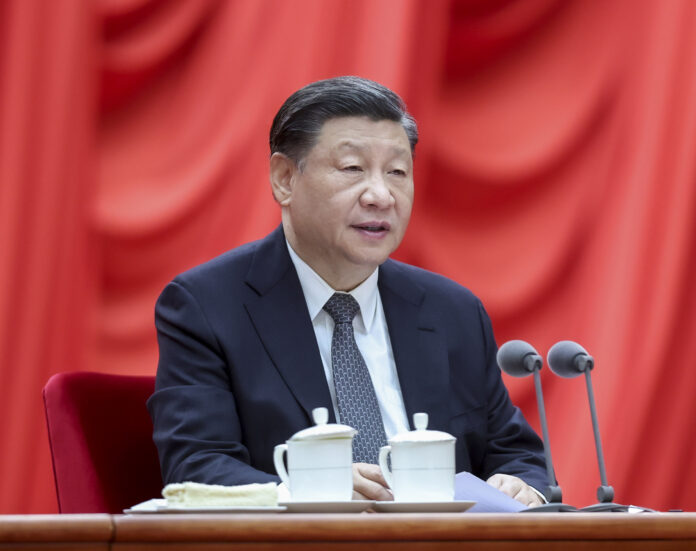Author: Kevin Rudd
Affiliation: President of Asia Society, New York. Former Prime Minister and Foreign Minister of Australia
Organization/Publisher: Foreign Affairs
Date/Place: November/December 2022/USA
Type of Literature: Article
Word Count: 4400
Link: https://www.foreignaffairs.com/china/world-according-xi-jinping-china-ideologue-kevin-rudd
Keywords: China, Xi Jinping, Marxist-Leninism, International Politics
Brief:
The grand theories of international relations following the Cold War have often revolved around the debate between realism and liberalism. With China’s rise dramatically changing the geopolitical landscape of the 21st century, the author argues that one crucial school of thought has been conspicuously absent from attempts to understand international relations: Marxism-Leninism, China’s official ideology since 1949. This view is understandable, given that most Western thinkers see communist ideology as effectively obsolete after the Cold War, even in China. This is because most Chinese leaders in the late 20th century, such as Deng Xiaoping and Jiang Zemin, took a pragmatic approach to the country’s economic policy, moving closer towards state capitalism.
However, Xi Jinping has emerged as a new kind of leader, promoting a form of Marxist nationalism that shapes China’s politics, economy, and foreign policy. Unlike his predecessors, Xi puts ideological purity at the forefront of his policies, abandoning the pragmatism of his predecessors. The author describes Xi’s leadership as “politics to the Leninist Left, economics to the Marxist left, and foreign policy to the nationalist right.” Overall, Xi Jinping represents the Ideological Man, blending ideological purity with technocratic pragmatism for China.
Historical materialism and dialectical materialism have always formed the basis of Xi’s politics at home, with the latter describing China’s move to a more advanced stage of socialism that necessarily accompanies the decline of capitalist systems. The former explains that Xi portrays his agenda as a step forward in an ever-intensifying contest between the CCP, opposition at home, and foreign forces. Xi emphasizes the importance of ideological values as the basis for a strong country, stating on one occasion that “once ideological defenses are breached, other defenses become very difficult to hold.” In doing so, Xi Jinping enhances the party’s power through “rectification campaigns” and reasserts the party’s control over the PLA and the People’s Armed Police, as well as centralizing China’s cybersecurity and surveillance systems. Xi’s goal is to upgrade party members’ theoretical learning and to baptize them in ideology and politics, putting the CCP and its ideology at the forefront of the Chinese state.
Regarding China’s economic policy, Xi has been promoting greater party and state intervention, reflecting a new statist economic orthodoxy. Xi takes a strong stance against the market-based policies once implemented by his predecessor, Deng Xiaoping, confident that by implementing Marxist principles, China can achieve national greatness and greater equality. To achieve this goal, he has pushed the party to increase its influence on private firms by appointing senior management and board members. Xi’s target is to create a “dual circulating economy,” in which China will become self-reliant in every sector, while the world’s economies become more dependent on China.
Under Xi Jinping, China’s foreign policy has become more assertive and has embraced a form of nationalism. Xi views nationalism as a vanguard against foreign influence that threatens the traditional values of the Chinese community. To achieve his ambition of making China a leading global power by 2049, Xi has introduced three main ideological concepts. The first is “comprehensive national power,” which combines China’s military, economic, technological power, and foreign policy influence. The second is “the international balance of forces,” which motivates the Party to push China’s progress in catching up with the US and its allies. The third is “the rise of the East and the decline of the West” as a narrative for China surpassing the United States.
Xi’s implementation of these concepts has had a significant impact on world politics, with China taking a range of foreign policies that would have been unimaginable under previous leaders. These include assertive military stances and clashes with neighboring countries like Taiwan and India, building new China-centric international institutions to challenge the status quo, and attempting to change the course of history to highlight Chinese power and reflect Marxist-Leninist values.
Despite China’s improvements in world politics, there are several obstacles that may slow down its rise. While Xi is unlikely to collapse due to political internal contradictions, he may face challenges related to the economic structure and demographics. His vision of greater control over the private sector may discourage investment due to the fear of political risks, which could impact economic growth over time. China is also facing a demographic threat with its rapidly aging population, which is affecting workforce performance, lowering productivity growth, and creating a dilemma between providing social care and pursuing national security goals and industrial development. In the 2020s, Xi’s quest is to make China a stronger country despite these challenges.
By: Salman Nugraha, CIGA Research Intern




